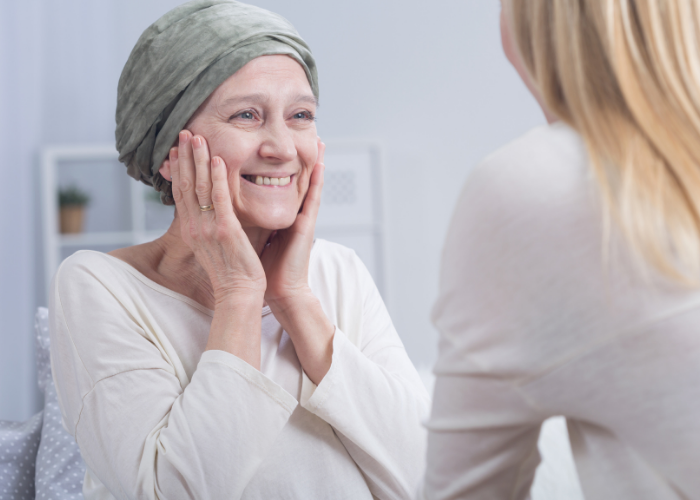
Cancer can be an isolating and debilitating condition. Researchers may make amazing breakthroughs when it comes to understanding cancer, but it is only those who have experienced cancer firsthand that can truly understand what it is truly like. As such, patient input is crucial to researchers, because it can help them understand the disease through the eyes of the patient.
Founded in 2000 by Sally Crossing, Cancer Voices is a volunteer organisation that provides a voice for people affected by cancer, working to improve the cancer experience for Australians, their families and friends. With a focus on the areas of diagnosis, information, treatment, research, support, care, survivorship and policy, Cancer Voices work with decision-makers to ensure that the patient perspective is heard.
‘Cancer Voices aims to improve the cancer experience for any Australian affected by cancer,’ explains Lee Hunt, who leads and coordinates the Cancer Voices Consumers in Research program for News South Wales and Victoria. ‘We exist to promote improved access for those who have experienced cancer. As consumers, their perspective is crucial.’
Lee’s role is to partner consumers with relevant researchers so they can provide a personal perspective into what research is most needed.
‘Because we’ve been on the journey ourselves, we can help researchers develop questions that reflect the needs and issues faced by real people. We can then promote and publicise findings to the wider community, which leads to improved understanding and support of research, and opens up the possibility of more funding in areas which have greatest end-user impact.’
Lee understands first-hand what a cancer diagnosis means, having been diagnosed with an aggressive Grade 3 breast cancer at the age of 53.‘What many people don’t know is that the cancer journey doesn’t stop when the treatment finishes,’ she explains. ‘The side effects of treatment can be long-term and harrowing, and often don’t show up until years later.’
Requiring aggressive chemotherapy to improve her outcome, Lee was left with serious toxicity throughout her body. She also had to undergo radiotherapy, causing burns to her skin and oesophagus which have forced her to drastically modify her diet.
In addition, Lee had to fund over $50,000 worth of medication herself, meaning she was unable to give up work throughout the severe treatment. Since then, she has undergone $22,000 worth of dentistry to replace lost tooth enamel as a result of chemotherapy.
Despite all this, Lee hasn’t lost her sense of humour; ‘The main thing is, I’m still here…and because I paid for everything on my credit card, I managed to get a free holiday to Italy out of it all!’ she laughs.
It is this personal journey that prompted her to look for ways to connect with and advocate for others who had been through similar experiences.
Consumers And Cure Cancer
For Cure Cancer, the importance of consumers in research is an area of significance. As part of the Cure Cancer grant process , all applications must pass through a consumer panel for consideration before any grants are awarded.
Additionally, their researchers are continually exposed to ‘real people’ through Can Too Training Pod programs, showcases and community focused activities throughout the year.
‘We always say that we need to work together to beat cancer because we genuinely believe that,’ says Nikki Kinloch, Cure Cancer CEO. ‘Raising money to fund our grants is crucial to our organisation, but it’s also important to have a variety of different perspectives - particularly those of people who have experienced cancer firsthand - when considering our grant recipients.’
‘Organisations like Cancer Voices give real people an opportunity to be involved in the research process, and our researchers find their input invaluable. By involving the consumer, we can support innovative research that truly makes a difference.’
If you’d like to find out more about Cancer Voices and how you can be involved, head to their website here .
Share Your Story
Whether you or someone you care about has experienced cancer, Cure Cancer are always interested in hearing about your experiences. Their researchers also find this information incredibly useful as it helps them consider their work from the point of view of the patients or their families.
For people affected by cancer, knowing about other people’s experiences with cancer can be a source of support and inspiration, or of consolation. Your story may help to encourage people to fund the ground-breaking work of Cure Cancer’s early-career scientists.
Share your story here .